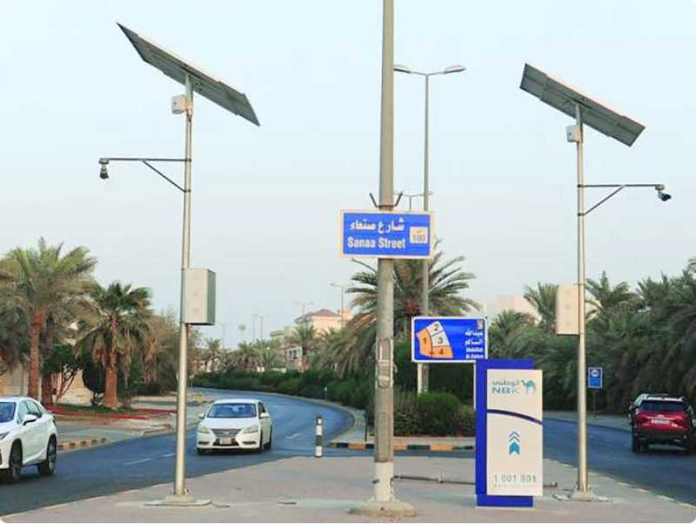The law that was passed by the government and presented to the National Assembly and approved in 2015, regarding the installation of hundreds of cameras in the streets and public places as part of its multi-pronged strategy to control public security, deter criminals and put an end to crimes and accidents, has resurfaced with the same controversy that it infringes on the privacy of a conservative society, although many support the idea calling it an advanced step and an important tool to fight crime.
The “street cameras” were to be installed in cooperation with the Ministry of Interior in four areas — the suburb of Abdullah Al-Salem, Shamiya, Yarmouk and Qadisiya. Some people, who considered installing cameras in this way as an “infringement on freedoms”, revolted, while others asserted that the horrific crimes in Kuwait claimed innocent victims, call for diversifying mechanisms to enhance security and expand the circles of “collective effort” to achieve this, stressing that the fight against crime requires a collective effort that is not limited to the security services only, reports a local Arabic daily.
According to the opinions of former and current legal experts and senior officials in the boards of directors of cooperative societies, the initiative to install cameras lies in its importance and financing, the characteristics and functions it performs and whether it constitutes an infringement on people’s freedoms,
A security source confirmed that the purpose of installing surveillance cameras in the main and secondary streets is to maintain security and combat widespread crimes, and not for the purpose of spying. The source said that these cameras are under the supervision of the security authorities and are linked to the Operations Room of the Ministry of Interior and are also used in judicial departments as criminal evidence that helps in imposing the correct judgment and identifying criminals.
The source added that its installation was based on a cooperation protocol between the Ministry of Interior and the Union of Cooperative Societies, to monitor the streets with the aim of reducing crime and pointed out that cameras ” protect people and preserve their rights during accidents, thefts and crimes, and have been in place in developed countries for a long time.”
The Dahia and Mansourieh Cooperative Society succeeded in implementing the initiative of the Ministry of Interior that it called for, with the approval of the Ministry of Affairs, regarding the installation of a security monitoring system for internal roads in residential areas that fall under the jurisdiction of cooperative societies.
The former Chairman of the Board of Directors of Al-Dhahia and Al-Mansuriya Co-op, Abdulwahab Al-Faris, said that the project was signed by the association on May 3, 2021, based on the directives of government agencies and the approval of the Board of Directors at the time, with the aim of providing security protection for the Abdullah Al-Salem and Al-Mansuriya suburbs.
Al-Fares added to Al-Qabas that the goal of the project is to support the security system, as the cameras were linked to a special system of the Ministry of Interior, which supervises it, and that the association was keen to implement it in order to preserve security in the two regions.
In response to a query by MP Osama Al-Shaheen, commented on Twitter about the initiative to install cameras and their presence outside the association’s borders, Al-Fares stated that “the control room, of course, belongs to the Ministry of Interior, not the association, and the photography is not viewed for security and legal reasons and according to what is regulated by law.”
In turn, the head of Dahiat Abdullah Al-Salem and Al-Mansuriya cooperative society Ahmed Al-Rashed confirmed that the association does not manage surveillance cameras at the entrances and exits of the suburbs, indicating that the association only paid the cost of the tender for the installation of cameras, so that it is managed by the “Interior Ministry”.
Al-Rashed added to Al-Qabas that the cooperation with the Ministry of Interior was related to financing only, and that cooperative socities did not cooperate with any other parties except for the executing company.
Camera features and functions include
► Monitoring entrances and exits to residential areas
► Connecting residential areas to the “Dakhiliyah Operations” system
► Monitoring all secondary electricity substations
► High accuracy of license plate reading features
► Monitoring crimes to protect people and preserve their rights
► Provides forensic evidence in identifying criminals

















